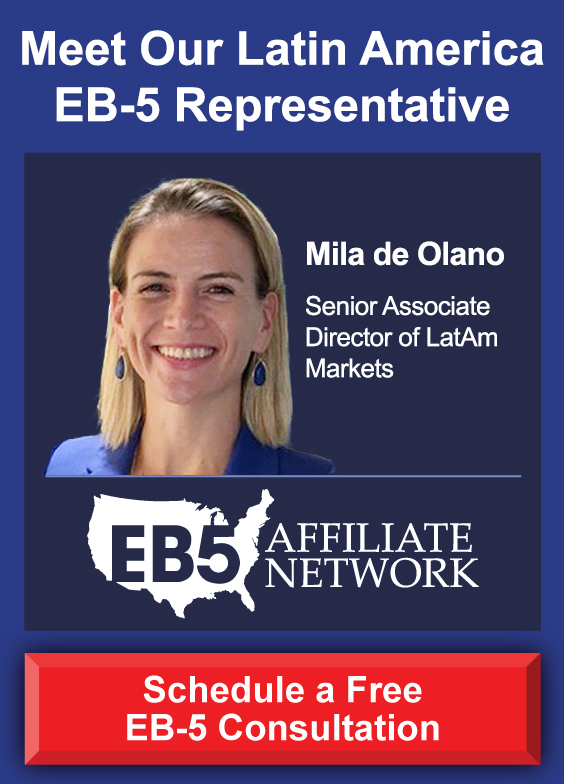The international financial transactions inherent to the EB-5 Program have encouraged practitioners and governments alike to adopt stricter safeguards against corruption in recent years—especially in China, from which the majority of EB-5 applicants originate. In the United States, the Foreign Corruption Practices Act (FCPA) prohibits entities from bribing foreign officials, whereas Chinese laws further prohibit bribery in China by foreign and domestic entities. To guard against the possibility of engaging in bribery, even unintentionally, EB-5 practitioners must fully understand the compliance issues all parties face.
Chinese president Xi Jinping has recently stressed that China will prosecute all those involved in corruption, both Chinese and foreign, including government officials. Most recently, in 2014, in its largest anticorruption action ever, the Chinese government levied almost $500,000,000 in criminal penalties against pharmaceutical giant GlaxoSmithKline and sentenced multiple executives to suspended prison terms for altering financial statements and bribing medical professionals.
The U.S. Department of Justice has likewise recently cracked down on corruption and FCPA violations nationally. Actors within the EB-5 Program, which is jointly overseen by the Securities and Exchange Commission and United States Citizenship and Immigration Services, may soon become the target of FCPA investigations given the need for cooperation between U.S. and foreign parties and the potential for commission payments to violate several laws.
This article outlines current anticorruption laws and their relevance for EB-5 investors, regional centers, and other practitioners as well as several strategies these parties can use to safeguard against corruption.
International Anticorruption Laws
The United States was one of the first countries to attempt to tackle corruption abroad with the passage of the FCPA in 1977. Since then, multiple countries including China have passed similar laws. Most notable among these is the United Kingdom’s Bribery Act 2010, the strict measures of which have served to establish a global benchmark for anticorruption practices. In the EB-5 context, the factor with the most potential to cause compliance issues is the payment of commissions, as outlined below.
U.S. regional centers and other securities issuers within the EB-5 system often make significant commission payments, sometimes up to a quarter of the investment amount, to Chinese emigration agents in an effort to compete in that market. However, different cultural conditions and potential translation issues mean EB-5 practitioners sometimes make such payments without full awareness of their purpose, leaving them vulnerable to corruption investigations under the laws of either or both countries. This is especially the case because Chinese emigration agents are considered foreign officials within the context of the FCPA, meaning a commission could be considered an improper bribe worthy of prosecution. China additionally may consider such a payment to be bribery.
If an emigration agent in turn bribes other Chinese officials using payments or gifts, both that agent, the original securities issuer, and even the investor can be held accountable for violation of both Chinese and U.S. anticorruption laws. The risk of unintentionally committing such a violation is especially high given the Chinese tradition of presenting monetary red envelope gifts to colleagues on special occasions to maintain good working relationships. As declining to participate in such traditions makes it difficult for agents to network and conduct business in China, ensuring such payments do not violate the laws of either country is especially crucial.
EB-5 Anticorruption Strategies
As both the United States and China have ramped up their efforts to fight corruption and prosecute those engaging in bribery both domestically and overseas, regional centers and other securities issuers working within the EB-5 Program must similarly adopt strategies to ensure they abide by the laws of both countries. The following are three such strategies regional centers can implement to mitigate the risk of running afoul of anticorruption laws.
- Conduct due diligence on foreign and domestic partners.
The U.S. Department of Commerce offers to warn securities issuers about potential legal issues which could arise from foreign transactions. To avoid implication in an FCPA investigation, it is prudent for regional centers and other issuers to avoid associating with persons identified on such lists. This is especially the case because even if the issuer does not engage in bribery directly, the actions of an agent paid by the issuer can result in legal liability for both parties. Regional centers can also take advantage of private screening tools to evaluate potential foreign partners as well as businesses and their employees both on first contact and periodically throughout the working relationship.
An additional step is to distribute an anticorruption questionnaire to potential foreign partners to gauge their knowledge of U.S. and Chinese laws and their willingness to identify potential corruption issues and limit legal liability for all involved. Having an attorney review these questionnaires can highlight any problem areas and allow partners to adequately address them. Hesitation to fulfill this request can thus serve to alert issuers to a party’s lack of anticorruption practices, whereas a legitimate agent would not hesitate to assure a potential partner of his or her compliance with all relevant laws.
- Create and enforce a comprehensive anticorruption policy.
To protect the company and its employees, management must implement a policy which outlines compliance obligations and daily procedures for all parties and also must institute a comprehensive anticorruption training program for all staff and partners. This signifies a clear commitment from the top, which the Department of Justice has suggested is a key factor in compliance with U.S. and international laws. In this regard, the United Kingdom’s Bribery Act 2010, mentioned above, can form an excellent basis for company policies, as it sets the global standard for anticorruption practices and satisfies both U.S. and Chinese requirements, preventing the need for separate policies for each country.
Regional centers and issuers may additionally appoint a compliance officer, who can serve to highlight potential issues before they cause liability. Establishing a reporting mechanism also encourages employees to speak up in confidence about problematic practices, allowing management to address them immediately and effectively.
When operating in the multicultural EB-5 environment, training in the languages and business practices of foreign partners is essential. Within the Chinese market, a regional center may need to institute a clear policy regarding an appropriate value for gifts. Because anticorruption laws do not clarify what might be considered a bribe in this context, issuers may wish to remain conservative in their gifting policies to avoid such concerns altogether. Requiring that foreign partners additionally understand and be trained in these anticorruption policies is a crucial strategy in preventing the actions of such partners from creating a legal liability for the regional center.
- Document all compliance policies and financial transactions.
In the event of an FCPA investigation, written records of the above anticorruption program and all due diligence efforts will support that the issuer has proactively attempted to safeguard against corruption. Complete and accurate records of all financial transactions will additionally signal diligence on the part of the issuer and will allow for periodic internal audits to monitor for potential violations. These will play a key role in the argument that the issuer has made every reasonable effort to prevent bribery and corruption by employees and foreign partners.
Consulting with experienced counsel to periodically adjust company procedures and account for new risks and areas of weakness is a crucial step in complying with U.S. and Chinese anticorruption laws. By continually revisiting its anticorruption policies and maintaining awareness of international anticorruption obligations, issuers can avoid legal liability and maintain the transparency of the EB-5 Program for investors and practitioners alike.










